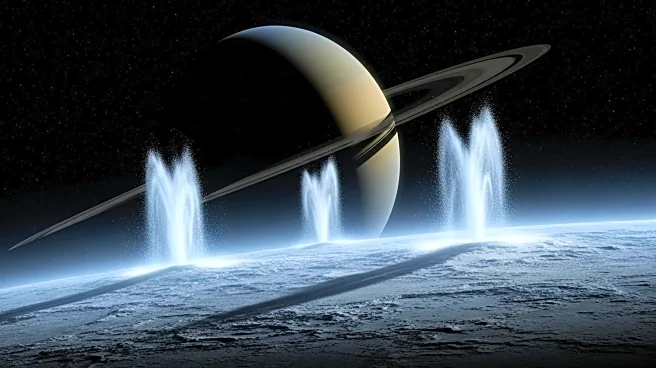What's Happening?
Recent studies have revealed that Saturn's moon Enceladus is emitting complex organic molecules, suggesting it could be a promising location for extraterrestrial life. Data from NASA's Cassini spacecraft, which explored the moon between 2005 and 2015, indicates that Enceladus has an underground ocean with chemical reactions similar to those associated with life on Earth. The discovery of nitrogen- and oxygen-bearing compounds, ethers, and esters in the moon's ocean spray further supports the potential for habitability.
Why It's Important?
The presence of complex organic molecules on Enceladus enhances its status as a candidate for hosting life beyond Earth. This finding could significantly impact our understanding of life's potential in the solar system and guide future exploration missions. The European Space Agency is considering a mission to Enceladus to further investigate its habitability. Discovering life or even the conditions for life on Enceladus would have profound implications for astrobiology and our understanding of life's origins.
What's Next?
Further analysis of Cassini's data and potential future missions to Enceladus will aim to confirm the presence of life or prebiotic conditions. The European Space Agency's consideration of a mission to the moon highlights the scientific community's interest in exploring its potential for life. Continued research will focus on understanding the chemical processes occurring on Enceladus and their implications for habitability.









